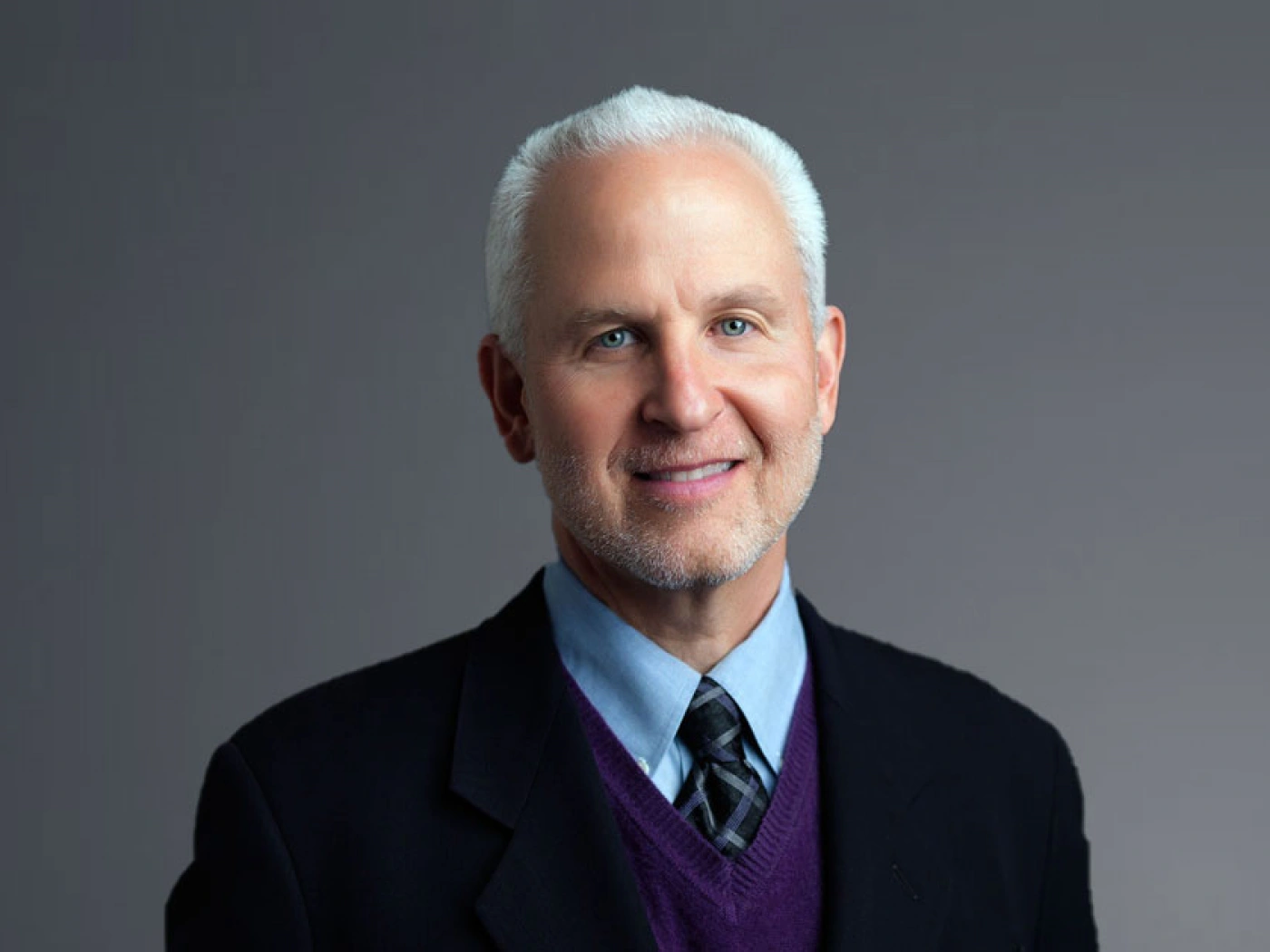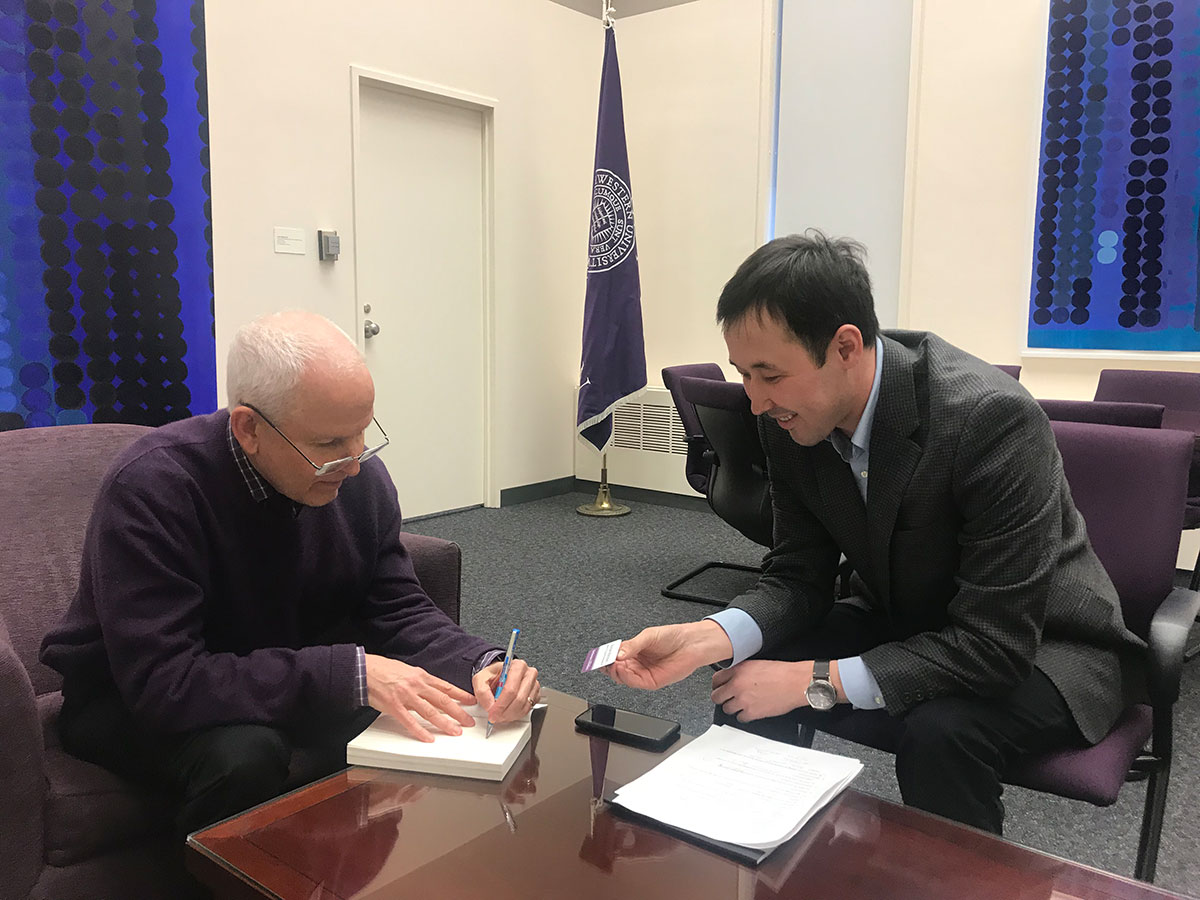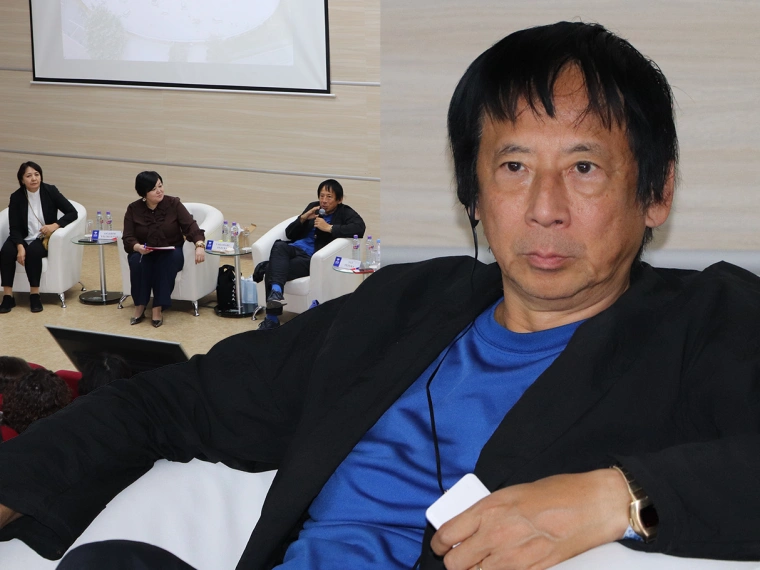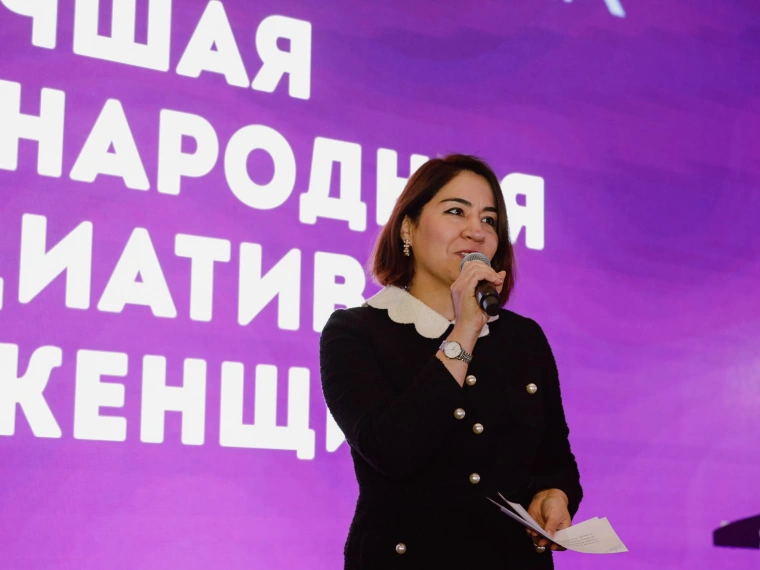
Northwestern University President: Humility is not a sign of weakness
Morton Schapiro is the 16th President of Northwestern University and a Professor of Economics at Judd A. and Marjorie Weinberg College of Arts and Sciences. He has written or edited nine books and written more than 100 articles.
– How would you describe your leadership style?
I consider my main vocation to be that of a professor of economics, so my leadership style has been influenced by what I’ve spent so many years studying. I don’t believe in rigid, centralized models of managing. Economists like myself believe that individuals know what’s in their own best interests, and we believe that we need to find a variety of ways to incentivize and motivate them.
As a leader, I’ve always worked to build a team in which each member enjoys a great deal of responsibility. I have 14 direct reports, and I see my job as helping all of them to do their jobs as best as they can.
I meet with them frequently, through weekly group meetings as well as regular one-on-one meetings, and I always ask, «What can I do to help you? Do you need my help, do you need my advice?» I also know that the people who work for me know more about their individual areas of expertise than I do. So I respect that, and I don’t dictate what they should do. I’m there instead to support them in their work and in their own development as leaders.

– Can you name a person who has a tremendous impact on your leadership style? Why and how did this person impact you?
I had a wonderful mentor, a great economist named William G. Bowen, who had been president of Princeton University as well as head of the Mellon Foundation. Our styles are different. He was larger than life kind of guy. He had a lot of influence on me, maybe not in my leadership style, but in my life.
I would not have taken this job as president Northwestern if not for him. I had initially said no. But he called my wife, who wanted me to take it, and they then convinced me. The next thing I knew I was president of Northwestern, because of his tremendous influence.
I also have a co-author, professor Richard Easterlin, another great economist. My love for teaching undergraduates and my love to publish actively, even as a president, comes from working with him.
And then I’ve worked for some people who had styles I didn’t really like. Sometimes I remind students that not all mentors are positive: Sometimes, you learn from them what not to do. I’ve worked for some people who were very dictatorial. For instance, they get their power from playing their direct reports against each other, always trying to keep everybody off on guard. I used to think at those meetings, «One day I’m going to be a president, and I’m not going to be like that. And when something goes wrong I’ll take the blame. When something goes right I’ll try to give the credit to somebody else.» So that negative style actually helped me become clear in my mind about the need to take a more positive style for myself.
– What is the single most characteristic you believe every leader should possess?
At the end of the day it’s effectiveness. There’s no question, in the for-profit world, where I’ve been on corporate boards for 25 years, that if you’re not adding market share and providing sufficient shareholder return, you’ll get fired and should get fired. That is the nature of business.
In the not-for-profit world it’s a little harder to measure outcomes, but I still think you should have target outcomes, and you should be held accountable. Yesterday I met the executive committee of Northwestern’s board of trustees, and I had to report our progress to them: «Here we are,» and «This is how much money we raised,» and «This is how we’re doing head-to-head in admissions compared to our peers» and «Here is how we rank in sponsored research funding.» I’m not one of these university presidents who says, «We do wonderful teaching and we’re changing lives in ways that can’t be measured.» I’m an econometrician, and I intend to measure our progress. And at the end of the day, you better be moving your institution forward. That’s what I mean when I say effectiveness is the key.
I also believe that the way to become effective is to develop a better sense of empathy. That’s because, as an economist, I know that it’s all about incentivizing people. You want to incentivize them to do what’s good for the institution, even if nobody’s watching. And to do that you have to understand what motivates them: Is it an ego? Is it money? Is it power? And then you have to figure out how to incentivize them to work for the greater good of the organization. And you can’t understand that unless you listen to people, hear their stories, and treat them as individuals. You may see coaches in sports and other leaders who succeed for a couple of years, using intimidation and their own ego, but eventually people turn on you, ‘you lose the team’ as they say, and that happens in universities as well.
I know a number of presidents who tend to conflate themselves with the university. They try to become synonymous with the university because of their egos, and eventually people don’t want to work for them. These sorts of leaders never share the credit, but they do spread blame around, and they often have very unrealistic expectations about what their staff can do. These presidents sometimes brag that every year they fire one or two direct reports to keep others motivated. It’s inhuman. That’s not the right way in the long run, because inevitably people are going to undermine that person. So it’s better to listen to them, find out what motivates them, what makes them happy, and ultimately build a team that works together.
– What do you think is the biggest challenge facing leaders today?
Social media is a huge challenge. I wrote an op-ed years ago in which I speculated that with new technologies and the communication revolution, it would become harder than ever to run universities and businesses. Oh, boy, I was right.
Leaders have to control the narrative, but the speed and reach of social media make this really hard. Because you don’t control media anymore, misinformation can really be difficult to deal with. And I didn’t envision the sort of the nastiness of the internet. There are some tremendous benefits from social media, but I think there has been a general decline in civility, and a lot of that is fueled by Twitter, Facebook.
– What’s the one mistake you witness leaders making more frequently than others?
I think letting your ego get in the way is the biggest mistake. I think conflating the organization with yourself can make you do some really bad things. I think that the cult of personality—you see it everywhere, it happens in academia and happens in the for-profit world, it certainly happens in politics. But we’re all just stewards for a certain period of time. Just always remember that people came before you and people are coming after you. Try to do your best, but don’t confuse the organization with yourself.
– What piece of advice would you give to a leader, a new leader who’s just starting his or her leadership role?
I would advise a new leader to listen to people, to get to know people. I’d add that humility is not a sign of weakness. Recognize your own limitations, and have the confidence to add to your team people who are strong in areas in which you’re not strong.
I find that when leaders try to do things that they’re not good at, they hate it, and it throws them off from the things they are good at. In my case, there are a couple of things that I can do well, like admissions and financials. But we have a whole branding, operation, global marketing operation. They handle things I don’t know much about. They ask for my advice sometimes. But I after I give my advice, I trust them to get things done.
However, if you’re insecure, you don’t want anybody telling you what to do, and so you might try to do everything yourself. Or you might hire people who aren’t that good so that you can look better. That’s a serious mistake.
– When you were asked to take this position, were you confident?
We economists feel we know math and statistics, so we can become overconfident that we know how things are and how things work. I became a Dean at the University of Southern California 26 years ago, in charge of the largest academic unit at a university that’s much larger than Northwestern. I never doubted I could do the job, but I realize now that I didn’t know what the hell I was doing! I was inexperienced.
Back then I didn’t realize how difficult it was. I brought in a team of rookies. A number of them went off to become presidents. But at the time we were absolutely rookies, we didn’t know a lot of what we needed to know. And so it was really, really hard. The first year was an unmitigated disaster. We got a little better over time. I now realize I should have relied more on people with experience.
– How do you identify a leader’s strengths or weaknesses?
For somebody who reports to me, I can get a good sense of what they’re good at. We have a number of senior administrators here who are good at certain kinds of things and not as good at other things. Sometimes though, they try to do everything. So, after I identify the strengths and weaknesses of my direct reports, and I talk with them, I say, «I think you really need to work on this.» I try to help them, because the worst thing is if you don’t share the truth with them in order to help them improve. Earlier on, I was too hesitant to say anything bad to anybody until I fired them. And then they would look at me and say, «Why didn’t you tell me I was failing? Why didn’t you help me?» So I think we owe it to be honest with people, to identify their strengths and weaknesses and review those with them.
– How do you encourage innovation and growth with your direct reports?
You do that by giving them the freedom to fail. To try something, and if it doesn’t work, let them know that’s fine. I think they also know that when things go wrong, I take the blame so it makes it a little easier for them. I’ve had nine direct reports go off to be presidents of their own institutions. That’s pretty good. I think I have a reputation for bringing people in and helping them grow and get what they want—not that everybody wants to be a president, but at least 9 of them became presidents.
It’s easier to bring in excellent people to work for you if they’re on a presidential track and they know that you have a track record of helping people get there. So I try to nurture them, encourage them to take chances, and I tell them that it’s okay to fail. I want them to try new things. But we have to have metrics to evaluate, so you know you need to change course and you don’t double down on something that’s not working. That’s a bad mistake that a lot of leaders make.
– How do you help a new employee understand the culture of your organization?
If it’s a new employee who reports to me, I just watch the interaction. My whole staff meets once a week and we meet regularly in other smaller groups and they see how I run things. We have a lot of fun. It’s very informal, I don’t really have a prepared agenda, I say what’s on my mind, I encourage them to say what’s on their mind. We laugh a lot.
I encourage everybody to invest in their families, to have their own individual lives and don’t subsume themselves in their day job. I am always encouraging people to take more time off, to worry less about what’s going on. Even if it’s a disaster, a tragedy, don’t take it personally, we will get through it. So the culture is essentially, be kind and don’t be overly serious. I have a great time in my life, and I encourage those around me to be more laid back, to have a better perspective—to cooperate with one another and not be like competitors.
– What are you doing to ensure you are continuing to grow and develop as a leader?
I don’t know how much I’m growing as a leader, but I’m certainly doing so as a professor, and I see myself as a professor first, professionally speaking. I teach great students and try to get better at that, I still publish a lot, I get to referee reports all the time, I write op-eds and books. And I get a lot of intellectual stimulation by attending and participating in academic events on campus.
A lot of presidents tell me about their worst regret: They say, «Morty, I don’t know how you have time to write book after book. I don’t have time to teach.» I tell them, «Well, make the time. You’re the president. Who sets your schedule? That’s the first thing you learn when you’re in a position of power – own your calendar. Don’t let somebody else control the scheduling, it’s your life.» The best thing about being in power is that nobody can force me to be anywhere anymore. Even my board of trustees. Sometimes the board meets on Saturday morning. I have Shabbat, I have to go Synagogue, I just say «bye.» Sometimes I’m teaching a class, I say «bye.» They might look surprised, but what are they going to do – fire me?
So the thing that you want to do, as soon as you have the power, is to control your own calendar. Don’t let anybody tell you what to do or when to do it. How can you be a president and say, «Oh, they don’t let me teach»? Who is «they»? You’re the president, so teach.
By controlling my calendar, I can make sure there are certain things that I’m not going to miss. I don’t miss my classes. I don’t miss certain seminars. I don’t miss Synagogue. I make sure certain things are in place in my life. That’s a key lesson: If you’re not happy and if you aren’t getting intellectual stimulation, you shouldn’t be taking the job.





